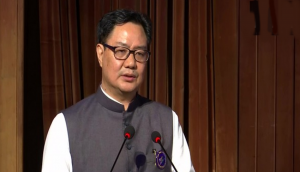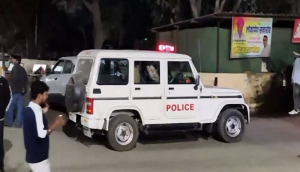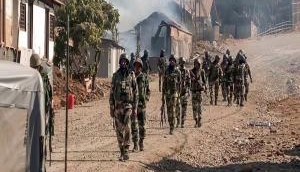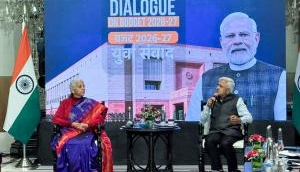
The Union government's decision to scrap Rs500 and Rs1,000 notes created a panic situation among common people.
On 8 November, Prime Minister Narendra Modi announced a slew of measures to tackle the circulation of black money in the market including getting rid of Rs500 and Rs1,000.
He said that around 80% of the fake currencies in India are that of Rs500 and Rs1,000.
As soon as the announcement was made panic ensued. Whatsapp, social media was full of updates, status, gifs etc related to Modi's announcement. There were long queues at the ATM booths, petrol pumps and shopping centres. People at all costs wanted to get hands on Rs100 notes in exchange of Rs500 and Rs1,000 notes.
Here are seven things you need to do with the Rs 500/1000 notes in your pockets:
1. Dont panic!
First things first. Do not panic. The entire nation has been affected by the move, not just you. The government will help all citizens transit this phase smoothly. So instead of panicking, collect all the Rs 500 and Rs 1000 notes you'll need to exchange in the coming days, and be prepared for long queues in the coming days.
2. Dealing with today - 9 November
There will be some relaxation on the ban on Rs 500 and Rs 1000 denomination notes till Friday midnight, i.e., 11 November. People will be able to use Rs 500 and Rs 1000 notes tomorrow and change it at banks later. Milkbooths, railway stations and government hospitals will be accept these notes till Friday midnight.
Also Read: Cash in your wallet? Know how the currency ban will affect you
3. Visit Banks & ATMs from 10 November onwards
As per the PM's speech, all banks and some ATMs will remain close tomorrow. So on Thursday, 10 November, take the notes to a bank or post office nearby and change them to denominations of Rs 100 or lesser. Tourists can change the notes at airports.
Old notes can be deposited in banks and post offices from 10 November to 30 December till close of banking hours. And for some reason, you don't manage to deposit all the your old notes by then, exchange them at designated offices of the RBI after submitting a declaration form and showing your ID card till 31 March.4. Keep your ID proofs ready
To facilitate your exchange process smoothly, keep your identity proofs such as Aadhaar card, Voter ID cards, Passport, Driving License and Pan Card handy, when you go to exchange these notes.
5. Go Cashless: Debit & Credit Card / Mobile Wallets
For the next few days, try using cashless facilities such as debit cards, credit cards, cheques, demand drafts and mobile wallets such as PayTM and MobiQuick till you get new notes or denominations of Rs 100 and lesser. Most shops use debit and credit cards. Taxi aggregators such as Uber & Ola accept mobile wallets.
Also Read: PM Modi's 'surgical strike' on black money: Twitter gets tizzy
6. No restriction on electronic fund payments
Remember, there's no restriction on electronic fund payments or transfers. So utilise it to pay bills, rents and other important transactions.
7. Track serial numbers of Notes
The income tax department will keep a close eye on who's submitting what. So, be ready to exchange the amount you can explain to the tax department. Also, maintain a list of serial numbers of the notes you'll be exchanging or submitting at banks.
Also Read: PM Modi scraps Rs 500 & Rs 1000 notes, gets compared to Tughlak and more
New Rs 2000 Currency notes with Nano GPS Chip: A hoax
From February 2017, Indian citizens will witness new Rs 2,000 currency notes. Various WhatsApp messages stated that the new notes be using state of the art indigenous nano technology with every Rs 2000 currency note will be embedded with a NGC (Nano GPS Chip). The RBI has called this a hoax.
First published: 8 November 2016, 11:07 IST


_in_Assams_Dibrugarh_(Photo_257977_300x172.jpg)




![BJP's Kapil Mishra recreates Shankar Mahadevan’s ‘Breathless’ song to highlight Delhi pollution [WATCH] BJP's Kapil Mishra recreates Shankar Mahadevan’s ‘Breathless’ song to highlight Delhi pollution [WATCH]](https://images.catchnews.com/upload/2022/11/03/kapil-mishra_240884_300x172.png)

![Anupam Kher shares pictures of his toned body on 67th birthday [MUST SEE] Anupam Kher shares pictures of his toned body on 67th birthday [MUST SEE]](https://images.catchnews.com/upload/2022/03/07/Anupam_kher_231145_300x172.jpg)



_in_Assams_Dibrugarh_(Photo_257977_1600x1200.jpg)


